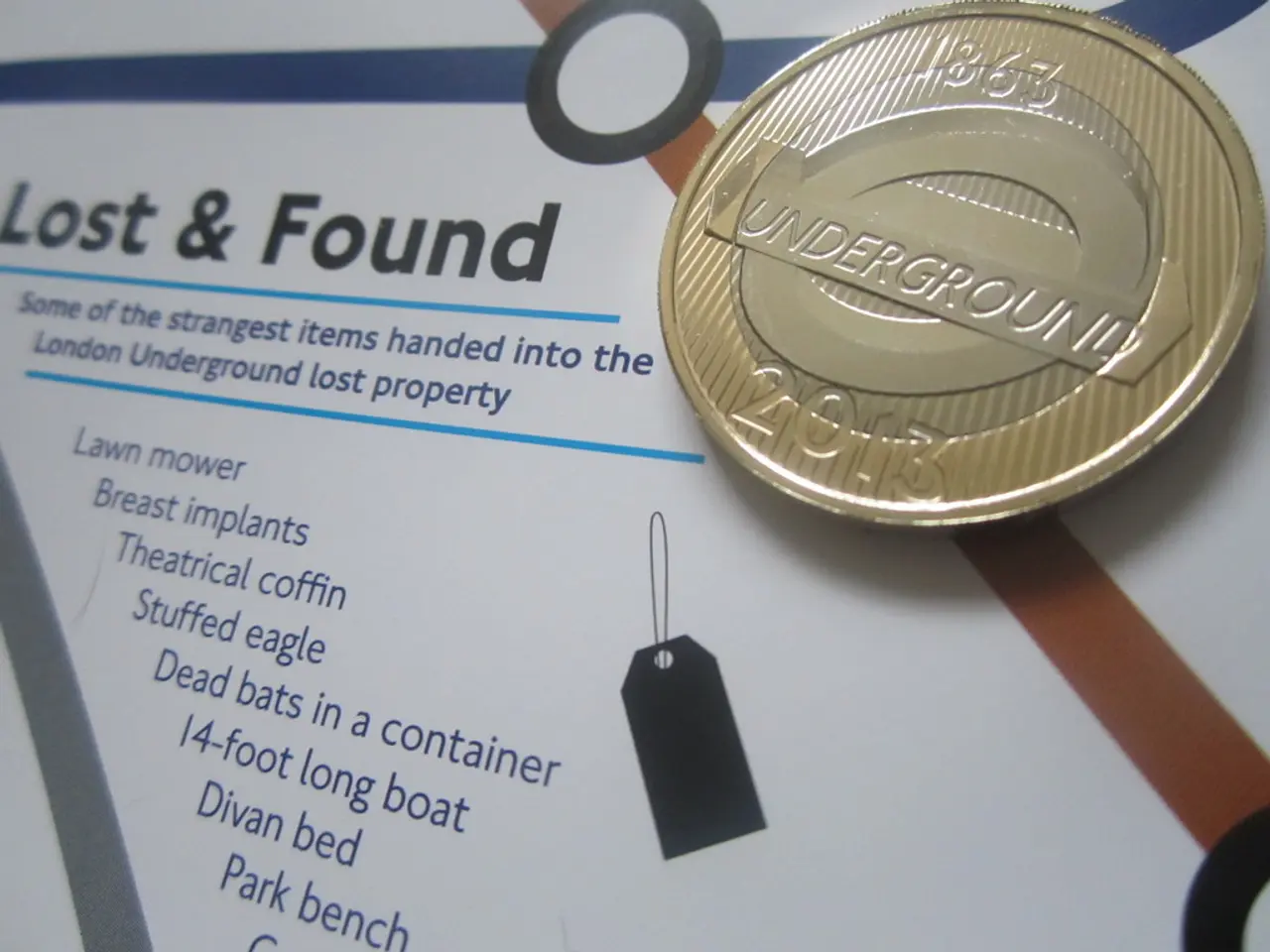Cryptocurrency Ether Outpaces Bitcoin in Terms of Corporate Investment, Boasting $3.5 Billion in Staked Assets
In a significant development for the cryptocurrency market, corporate treasuries have been increasingly investing in Ether (ETH), the second-largest cryptocurrency after Bitcoin. This trend, which has accelerated significantly in 2025, is marked by major companies like SharpLink Gaming increasing their ETH holdings to over 520,000 tokens, funded by large equity raises such as the $264.5 million raised in early August alone.
This shift towards Ether as a corporate treasury asset marks a new phase where companies are not just dabbling in crypto assets but actively investing in Ethereum. This move is inspired by earlier Bitcoin treasury strategies and is expected to fuel the growth of Ethereum’s decentralized finance (DeFi) ecosystems, potentially initiating a “DeFi Summer 2.0” characterized by renewed decentralized yields up to 14%.
The growing corporate ETH custody has several important impacts. Firstly, it increases Ethereum’s legitimacy and practical use cases. Firms injecting capital into ETH bolster the network’s health by expanding staking participation and fueling DeFi ecosystems. This could lead to a more efficient cross-border payment system, as the expansion of staking and DeFi participation, combined with corporate-backed large ETH holdings, could improve transaction liquidity and reduce settlement friction for cross-border transfers in Ethereum-based stablecoins or tokens layered on Ethereum.
However, this development also attracts regulatory scrutiny. As corporate ETH holdings scale and intertwine with public equity raises, concerns about market dilution and volatility arise. Regulators may also scrutinize the accounting, valuation, and disclosure of large volatile crypto assets on corporate balance sheets, as well as potential implications for securities laws and anti-money laundering compliance given the cross-border, programmable nature of ETH.
Despite these challenges, the rapid accumulation of ETH by corporate treasuries is catalyzing Ethereum’s adoption beyond retail and into institutional spheres. This trend suggests rising potential for Ether’s role in more efficient cross-border payments, supported by robust corporate balance sheets holding Ether as an asset.
The cross-border payment market, which represents a sprawling and inefficient system with multi-day settlement times, high fees, limited transparency, and heavy reliance on intermediaries, could benefit significantly from this development. Most cross-border transactions consist of B2B flows, and banks and payment networks have been investing in updating their legacy rails without much overlap between the two worlds. However, the separation between cryptocurrency and traditional finance is collapsing, with Ether emerging as a critical part of the crypto financial system.
Ether, unlike Bitcoin, depends on price appreciation as well as crypto staking for returns. Ether can be used in crypto staking, a practice where investors lock up their tokens to support the Ethereum network in return for rewards. Yields of 3% to 4% are possible in crypto staking with Ether. Stablecoins, blockchain-based tokens pegged to fiat currencies, are also a significant part of this ecosystem, emerging in the crypto market as liquidity and arbitrage vehicles.
As the corporate ETH custody continues to grow, it is expected that Ether’s popularity with companies seeking active returns will drive its further adoption, potentially leading to a more efficient and transparent cross-border payment system.
- The shift towards Ether as a corporate treasury asset could lead to a more efficient cross-border payment system, as large corporate ETH holdings could improve transaction liquidity and reduce settlement friction for cross-border transfers in Ethereum-based stablecoins or tokens layered on Ethereum.
- Companies are not just dabbling in crypto assets but actively investing in Ethereum, marking a new phase in the cryptocurrency market, with the growing corporate ETH custody attracting institutional interest in Ether.
- The cross-border transaction market, which is characterized by multi-day settlement times, high fees, limited transparency, and heavy reliance on intermediaries, could significantly benefit from the development of large corporate ETH holdings and the expansion of staking and DeFi participation in Ethereum.
- The rapid accumulation of Ether by corporate treasuries is catalyzing Ethereum’s adoption beyond retail and into institutional spheres, potentially leading to a more efficient and transparent cross-border payment system.
- Regulators may scrutinize the accounting, valuation, and disclosure of large volatile crypto assets like Ether on corporate balance sheets, as well as potential implications for securities laws and anti-money laundering compliance given the cross-border, programmable nature of Ether.




